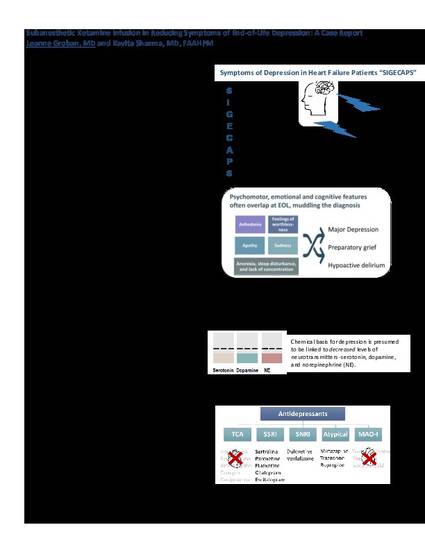
The development of major depressive disorder in patients receiving hospice care often goes undiagnosed, as it is difficult to distinguish from preparatory grief or hypoactive delirium in this unique patient population. If this preliminary barrier of appropriate diagnosis is overcome, it can be quite difficult to properly select and adjust pharmacological therapy. Many well-established antidepressants take 4-5 weeks for maximal effectiveness, have various contraindications to patients’ co-morbid chronic conditions, particularly patients with cardiovascular disease, or may simply be ineffective. Herein, we present a case report of severe treatment-resistant depression in a hospice patient with end stage heart failure, and discuss the potential use of low-dose intravenous ketamine infusion to reduce end-of-life suffering related to depression despite the theoretical contraindication of ketamine use in such patients due, in part, due to its sympathomimetic secondary effect
Groban L, Sharma K. Subanesthetic ketamine infusion in reducing symptoms of end-of-life depression: A case report. Fellows' most difficult oral case presentation at the Great Lakes Palliative care conference; May 6, 2022; Lake Geneva, WI.
